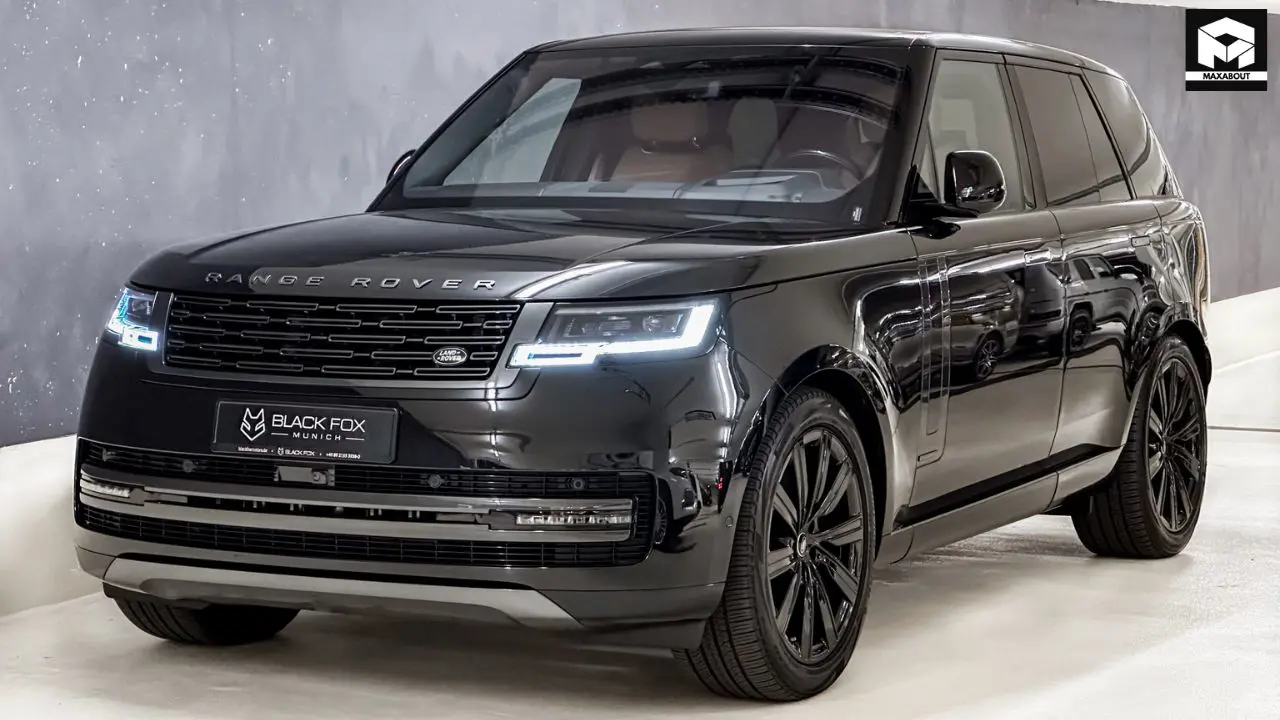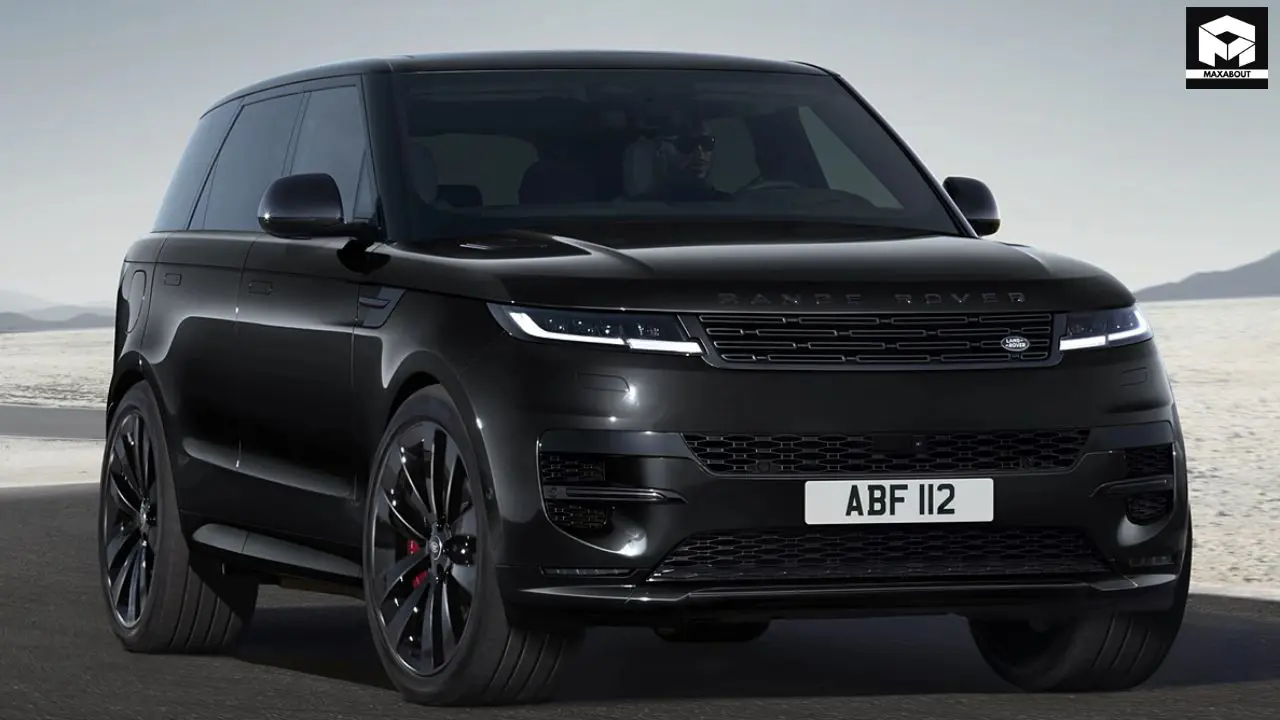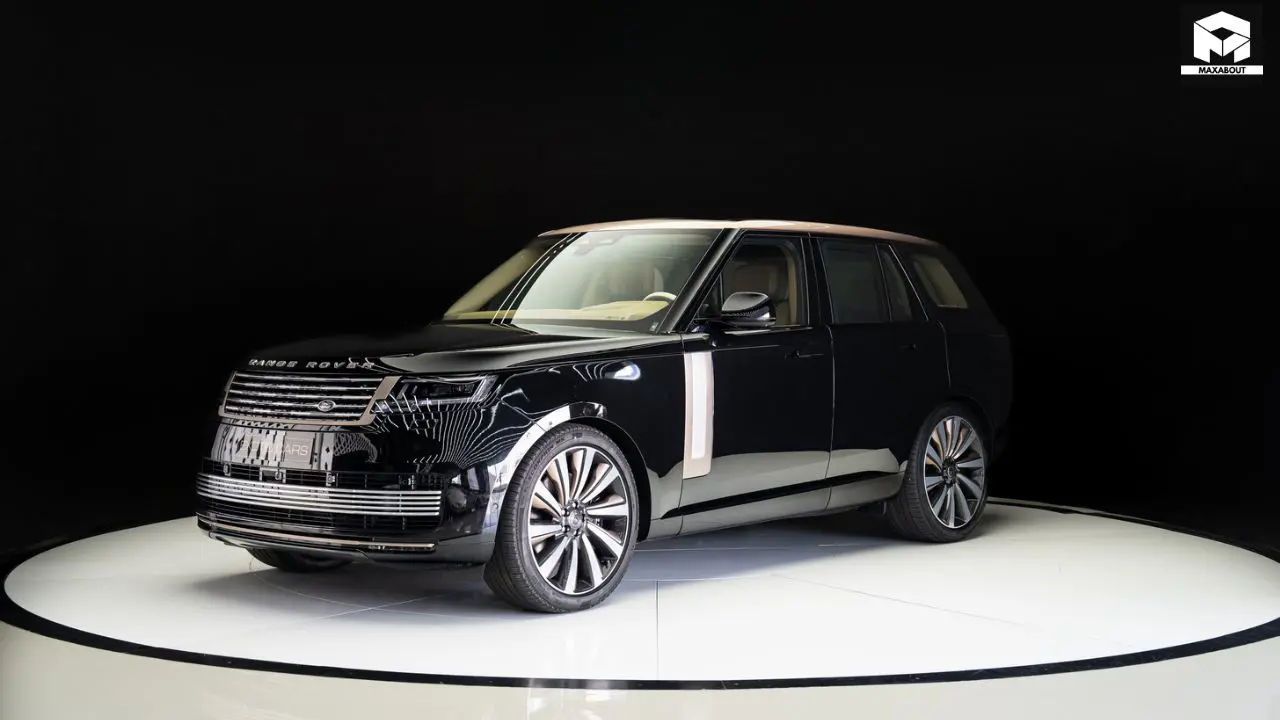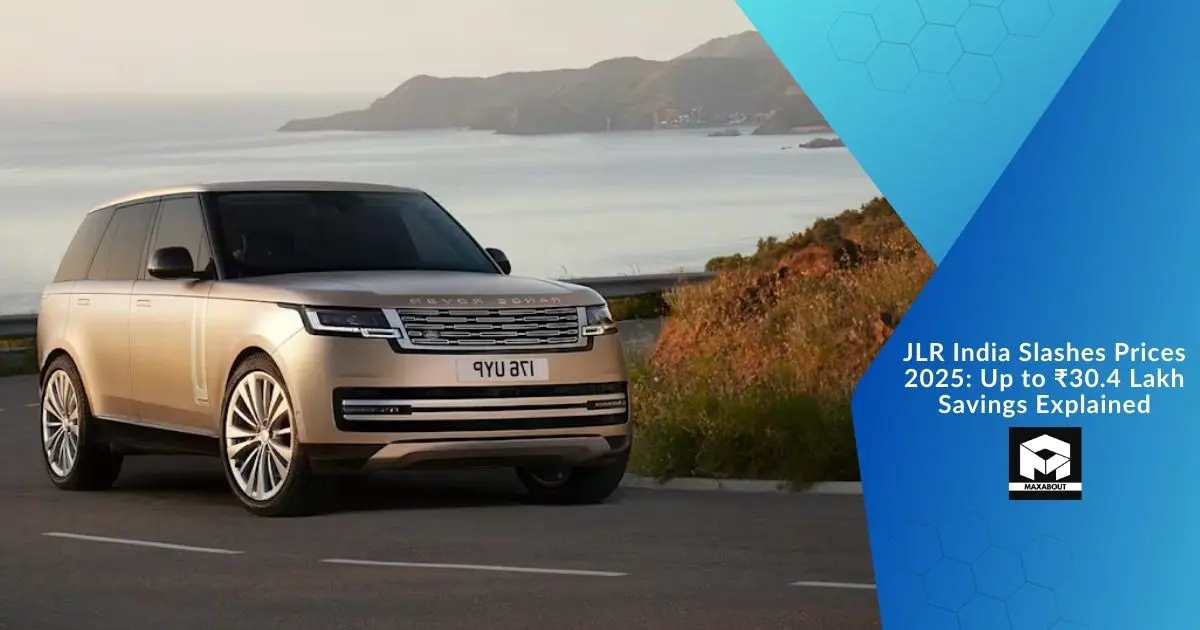JLR India Announces Massive Price Cuts Following GST Benefit Implementation
The luxury automobile market in India is experiencing a significant shift as Jaguar Land Rover (JLR) India has announced substantial price reductions across its premium vehicle lineup. Following recent adjustments in the Goods and Services Tax (GST) structure, JLR has decided to pass on the complete tax benefit to its customers, resulting in price cuts of up to Rs 30.4 lakh on select models.
This move represents one of the most significant price adjustments in the luxury segment in recent years. As someone who closely follows the luxury automotive market, I can say this decision by JLR is likely to create a ripple effect across the industry, potentially influencing pricing strategies of other luxury automobile manufacturers in India.
Models Affected by JLR's Price Reduction
The price reduction spans across JLR's premium SUV lineup, with the most substantial cuts being applied to the company's flagship models. Let's take a closer look at which models are receiving these impressive price reductions:
Range Rover: The Flagship Benefits

The iconic Range Rover, JLR's premium flagship SUV, has received the most substantial price reduction. Based on the official announcement from JLR India, the Range Rover lineup now sees price cuts ranging from Rs 26.9 lakh to Rs 30.4 lakh, depending on the specific variant and configuration.
The standard wheelbase variant of the Range Rover has received a price reduction of Rs 26.9 lakh, while the long wheelbase variant benefits from an even more significant price cut of Rs 30.4 lakh. This brings the starting price of the Range Rover down considerably, making this ultra-luxury SUV slightly more accessible to potential buyers.
Range Rover Sport: Sporty Luxury at a Reduced Price

The Range Rover Sport, which combines the luxury of the Range Rover with enhanced dynamic performance, has also received substantial price reductions. According to the official announcement, the Range Rover Sport models now see price cuts of up to Rs 25.5 lakh.
This reduction significantly alters the positioning of the Range Rover Sport in the luxury SUV segment, potentially making it more competitive against rivals from brands like Mercedes-Benz, BMW, and Audi.
Defender: The Rugged Icon Gets More Affordable

The Land Rover Defender, known for its exceptional off-road capabilities combined with premium features, has received price reductions of up to Rs 19.1 lakh. Industry data shows the Defender has been gaining popularity in the Indian market, and this price adjustment could further accelerate its adoption among luxury SUV enthusiasts who value its unique combination of ruggedness and refinement.
Understanding the GST Benefit Behind the Price Cuts
The substantial price reductions announced by JLR India come as a direct result of changes in the GST structure for automobiles. It's worth examining the tax adjustments that have made these price cuts possible.
Recent GST Adjustments for Luxury Vehicles
The Indian government has implemented certain adjustments in the GST framework for imported vehicles. Previously, luxury vehicles faced multiple layers of taxation, including basic customs duty, social welfare surcharge, IGST (Integrated Goods and Services Tax), and compensation cess.
According to recent reports from automotive industry sources, the government has rationalized some aspects of this tax structure, particularly regarding how the IGST is calculated on certain imported vehicles. This adjustment has reduced the overall tax burden on luxury automobile manufacturers like JLR.
JLR's Customer-First Approach
What's particularly noteworthy is JLR's decision to pass on the full benefit of these tax reductions to its customers. While some manufacturers might have opted to retain a portion of these benefits to improve profit margins, JLR has chosen to transfer the entire tax advantage to consumers.
This approach aligns with what industry analysts typically consider a customer-centric strategy aimed at boosting sales volumes in a competitive market. From my observation of the luxury car market, such substantial price reductions could potentially drive significant interest in JLR's lineup, especially among buyers who may have been on the fence due to the previous pricing structure.
Revised Price Structure: Before and After
To give you a clearer picture of the impact of these price reductions, let's look at the before-and-after pricing for some key JLR models in India:
Range Rover Price Adjustments
- Range Rover Standard Wheelbase: Previous starting price: Approximately Rs 2.39 crore; New starting price: Approximately Rs 2.12 crore (Reduction of Rs 26.9 lakh)
- Range Rover Long Wheelbase: Previous starting price: Approximately Rs 2.85 crore; New starting price: Approximately Rs 2.54 crore (Reduction of Rs 30.4 lakh)
Range Rover Sport Price Adjustments
- Range Rover Sport: Previous starting price: Approximately Rs 1.97 crore; New starting price: Approximately Rs 1.71 crore (Reduction of Rs 25.5 lakh)
Defender Price Adjustments
- Defender: Previous starting price: Approximately Rs 93.6 lakh; New starting price: Approximately Rs 74.5 lakh (Reduction of Rs 19.1 lakh)
These figures represent a significant repositioning in the market, bringing these premium vehicles slightly closer to their European competition in terms of pricing.
Impact on the Luxury Automobile Market in India
The substantial price reduction by JLR India is likely to have several effects on the luxury automobile market in the country.
Potential Sales Boost for JLR
Based on historical market responses to price adjustments, we can expect JLR to experience an uptick in inquiries and potentially sales in the coming months. Luxury vehicles often have price elasticity – meaning that changes in price can significantly affect demand. A reduction of this magnitude could bring JLR models into consideration for buyers who previously might have opted for competing brands.
Competitive Response from Other Luxury Manufacturers
The luxury automobile segment is highly competitive, with brands constantly monitoring each other's strategies. JLR's move might prompt other luxury manufacturers like Mercedes-Benz, BMW, Audi, and Volvo to reassess their pricing strategies or offer enhanced value propositions to maintain their market positions.
Industry reports suggest that several other luxury manufacturers are also evaluating the implications of the GST adjustments on their pricing strategies. We might see similar announcements from other brands in the coming weeks.
Shifting Consumer Perceptions
Price plays a significant role in brand positioning and consumer perception. With these substantial reductions, JLR models might be perceived as offering better value for money, potentially altering the brand's positioning in the minds of luxury car buyers.
From my analysis of consumer behavior in the luxury segment, value perception often extends beyond the initial purchase price to include factors like after-sales service, maintenance costs, and resale value. JLR's move addresses the first of these factors directly.
JLR's Current Market Position in India
To understand the significance of this price reduction, it's essential to consider JLR's current market position in India.
Sales Performance and Market Share
JLR has been a significant player in the Indian luxury automobile market, though it typically trails behind the German trio of Mercedes-Benz, BMW, and Audi in terms of overall sales volumes. According to industry data, the luxury car market in India accounts for less than 1.5% of the overall automobile market, with annual sales of approximately 35,000-40,000 units.
Within this segment, JLR has maintained a steady presence, particularly with its SUV lineup. The company's focus on premium SUVs aligns well with the growing preference for this body style among Indian luxury car buyers.
Recent Product Introductions and Updates
JLR has been active in updating its product portfolio in India. Recent introductions include new variants of the Defender and Range Rover Sport, along with updates to its Jaguar lineup. These product refreshes, combined with the newly announced price reductions, could potentially strengthen JLR's competitive position in the market.
Consumer Perspective: Is Now the Time to Buy a JLR Vehicle?

From a consumer standpoint, the substantial price reductions raise an interesting question: Is this the right time to consider purchasing a JLR vehicle?
Value Proposition Enhancement
The significant price reductions undoubtedly enhance the value proposition of JLR vehicles. For potential buyers who have been considering a Range Rover, Range Rover Sport, or Defender, the revised pricing makes these vehicles considerably more attractive.
When evaluating luxury vehicles, buyers typically consider the features, performance, and brand prestige relative to the price. With these reductions, JLR models offer more value per rupee spent than before.
Potential for Improved Resale Value
An interesting aspect to consider is the potential impact on resale values. Luxury vehicles typically experience significant depreciation in the first few years of ownership. With the reduced entry price, the depreciation curve might potentially be less steep, though this remains to be seen over time.
Looking Ahead: JLR's Strategy in India
JLR's decision to pass on the full GST benefit to customers provides some insights into the company's broader strategy for the Indian market.
Focus on Volume Growth
The substantial price reduction suggests that JLR is focusing on growing its sales volumes in India. By making its vehicles more accessible to a broader range of luxury car buyers, JLR could potentially expand its customer base in the country.
Based on industry trends, luxury car manufacturers often need to balance exclusivity with sufficient sales volumes to maintain a viable presence in markets like India. JLR's move indicates a tilt toward increasing its market share.
Electrification Plans
Looking beyond the immediate price reductions, JLR has announced global plans for electrification of its lineup. In India, this strategy will likely unfold gradually, with hybrid and fully electric models becoming increasingly important in the company's portfolio.
Industry analysts expect the luxury EV segment in India to grow significantly in the coming years, and JLR's global electrification strategy will likely influence its product introductions in the Indian market as well.
Conclusion: A Significant Move in the Luxury Automobile Segment
JLR India's decision to pass on the full GST benefit to customers, resulting in price reductions of up to Rs 30.4 lakh, represents a significant development in the Indian luxury automobile market. This move not only enhances the value proposition of JLR's premium SUV lineup but could also influence competitive dynamics in the segment.
For consumers considering a luxury SUV purchase, the revised pricing makes JLR models more compelling options than before. The coming months will reveal whether this price adjustment translates into significant sales growth for the brand and how competitors respond to this market development.
Based on the current trends and market conditions, we can expect the luxury automobile segment in India to become more dynamic and competitive, ultimately benefiting consumers through better value propositions and potentially more innovations from manufacturers vying for market share.

